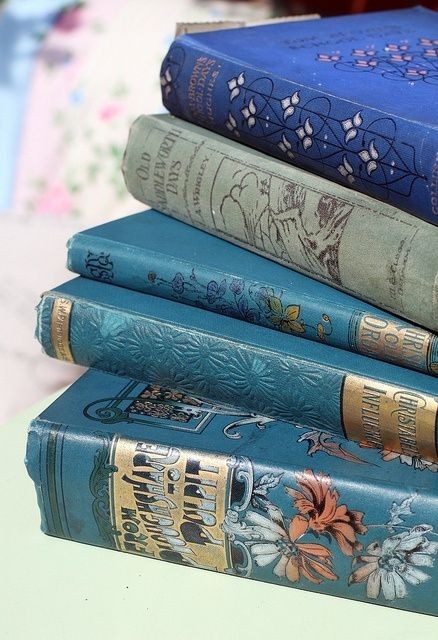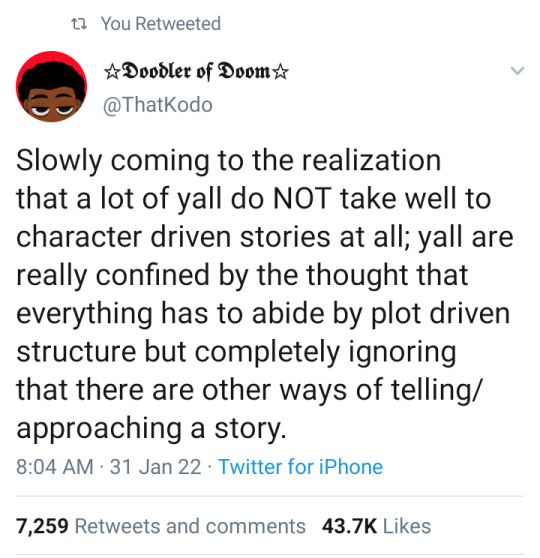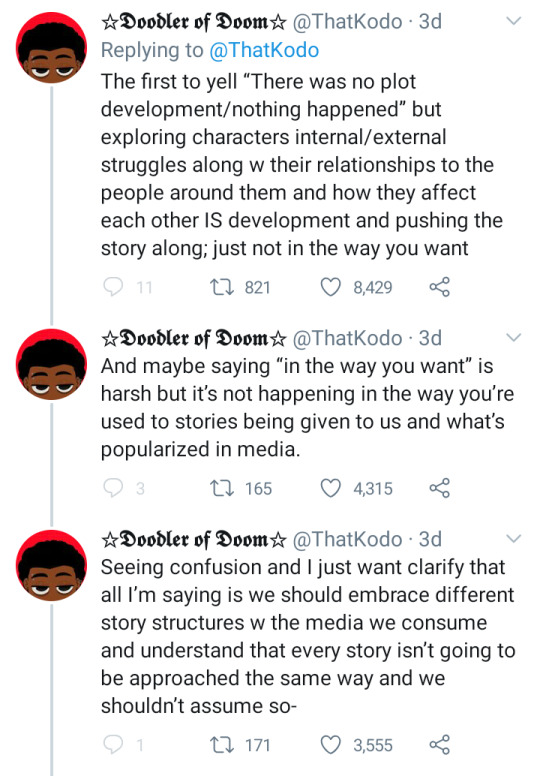Don't wanna be here? Send us removal request.
Text
#resources #titleideas
Fic Titles: Alphabet A-C
Take one and create!
A
A day to remember
A little more warmth
A Midsummer’s Nightmare
A silence so loud
About the both of us
Aching bones
Adventure time
After love is gone
After nightfall
After this is over
All the lies we told
All the love we lost
All the plans that went wrong
All the reasons why
All the things she said
All the things we tried to forget
All they got to give
All we ever wanted
Always and forever
As long as we believe
As the church bell rings
As the night turns into day
At the dawn of our history
Awful plan, great result
Awhile ago and far away
♡♡♡♡♡♡♡♡♡♡♡♡♡♡♡♡
B
Back to square one
Bad reputation
Bad ideas (and good results)
Balls and other royal disasters
Barely breathing (but still alive)
Beating of two hearts
Beautiful souls
Beautifully wrong
Behind the façade
Behind violet eyes
Before it's over
Bell's ringing
Best-Laid Plans
Best believe me
Better days and even better nights
Better off without you
Better with you
Blast from the past
Bulletproof hearts
Buried underneath the lies
Butterflies in my head
Brave is the heart that loves
Bruised lips
Bruises on my heart
By your side
♡♡♡♡♡♡♡♡♡♡♡♡♡♡♡♡
C
Calm before the storm
Candy cotton dreams
Can we stay like this?
Can't change the past
Can't erase those feelings
Can't feel your touch anymore
Can't look away from you
Can't miss what you never had
Can't stop loving you
Can't you feel my heart beating?
Caught in the lies of our lives
Champagne dreams
Change of fate
Change of plan
Changing ways
Chaos in your mind
Chaotic times
Charismatic fool
Checkmate, babe
Chemical reactions
Coffee dates and disasters
Compromises
Court gossip
Courting the beloved
Cowardice or bravery?
Find more titles: D-F|G-I|J-L|M-O|P-R|S-T|U-V|W-X|Y-Z + Numbers >>All the Fic Titles.
If you like my blog and want to support me, you can buy me a coffee! And check out my Instagram! 🥰
2K notes
·
View notes
Text
#writers
Your writing will always feel awkward to you, because you wrote it.
Your plot twists will always feel predictable, because you created them.
Your stories will always feel a bit boring to you, because you read them a million times.
They won't feel like that for your reader.
26K notes
·
View notes
Text
#writingadvices #justadvices
Cat’s Writing Tips: Keeping Tenses
Hello! Welcome back to another Writing Tip Monday with Cat! My name is Cat, and I’ve been writing for 16 years. I’m not a professional, but I have learned a thing or two in my time, so take any advice I give with as many grains of salt as you see fit. Let’s get into it.
Let’s talk tenses. You have past tense, present tense, and future tense. Typically in writing, people use past or present tense, depending on their preference. Future tense isn’t typically used in an overall sense, so we’re going to focus on past and present tense today. So, what does that look like?
Past tense:
She walked down the street.
Present tense:
She walks down the street.
Which one you use is entirely up to preference, one isn’t more “correct” to set your story in than the other (in general). The issue comes when people mix the two because it can be jarring and confusing for the reader. Here’s an example:
She walked down the street to the coffee shop on the corner, joining the line of other patrons. While waiting, she pulls out her phone and checks her email.
Now, this is kind of an obvious example, but I have seen people do this. While it doesn’t necessarily matter which tense you pick, you do need to only pick one. Then stick to it. Whether you’re writing in past or present tense, you need to write the entire story in whichever tense you picked. Keep an eye on your verbs and make sure you are being consistent with your use of tense.
Sometimes tense slips are trickier than the one I listed above. If you’re worried about slipping tenses, read back through your works carefully and consider which tense each sentence is in. Ask a beta to read over it for you. Tense slips are an easy enough fix if you know how to spot them, and once you learn how to correct them, it becomes easier to spot them during the drafting process and eliminate them from the beginning.
If you have any more questions about tenses, or if you have another writing topic you want to see me cover, let me know in an ask or in a comment on this post. I’m happy to talk writing any day of the week, not just Mondays. See you all next week!
217 notes
·
View notes
Text
#inserts
Writing Multidimensional Characters
Recently, I was reading a post about how writers often struggle to make multifaceted, dynamic characters - characters who aren't flat. Characters who aren't either purely good or purely bad.
And I get that tendency because when we're writing a story, we get caught up in getting from point A to point B and we make characters do what we need them to do in the moment. Sometimes that results in Villain always being Villainous and Hero always being Heroic.
I've found one of the best ways to combat this tendency is to think of real people you know. I don't mean basing your characters off of them directly. I mean just thinking about them and their behaviors.
For example, I used to care for a man who was . . . just a bad person in a lot of ways. Mean, narcissistic, "merciless," by his own words. He was very ambitious in his career and everyone knew him because he could rise through the ranks like crazy. Very sharp and intelligent and handsome and eloquent. I was so fascinated with him.
Behind people's backs, he was relentlessly vicious. When a coworker's father died and we had to go to the funeral, he admitted to me he'd never really cared when other people died. People die and it made no difference to him, he said. Some of the things he said will never leave my mind. People who wanted to talk to him often came to me and asked me first because they were too afraid of him to approach directly.
One day, we went to his office together and someone had taped a note with one word on it to his door: AIDS.
That's all it said. AIDS.
He was openly gay and everyone knew. The paper didn't need to say anything else because we both understood it was a direct insult and attack against him.
We were completely alone, and I watched as almost instantly he turned from a tyrant into a small child. He started sobbing and literally hid behind me like a cornered animal even though I was smaller than him, crying and crying to me, "Protect me. Protect me." He didn't even sound like himself.
Imagine this big, mean man like that.
I'm not saying any of that detracted from what a bully he was, how violent and terrible he could be. But in that moment, I saw a piece of a human being I hadn't seen before.
Real people never fail to surprise us. Think about those surprising moments, and think about yourself and your own surprising behaviors and motives too. To this day, I think about what it was in me that made me so interested in a person like that. I always considered myself a kind and gentle person, so what did that say about me? Did I think I could change him? Was I just too young and naive to see the big picture?
Your characters should be like that too. Surprising and complicated and nuanced. Their behaviors and motives and actions won’t always make sense, and that’s how it should be.
892 notes
·
View notes
Text
#writingadvices #justadvices
How To Use Motifs In Writing


It's not necessary that you know what a motif is or how to use it.
Motif is one of the most useful literary devices when writing a novel or short story. At the same time, the definition of motif can be difficult to pin down.
Motif is a literary technique that consists of a repeated element that has symbolic significance to a literary work. Sometimes, a motif is a recurring image. Other times, it’s a repeated word, phrase, or topic expressed in language. A motif can be a recurring situation or action. It can be a sound or smell, a temperature, even a color.
If you spot a symbol, concept, or plot structure that surfaces repeatedly in the text, you're probably dealing with a motif. They must be related to the central idea of the work, and they always end up reinforcing the author's overall message.
EXAMPLES:
A repeated reference or visual of shattered glass (something in life is about to break)
Recurring dishonest characters (to cue up the discovery of an unfaithful spouse)
The key aspect is that a motif repeats, and through this repetition helps to illuminate the dominant ideas, central themes, and deeper meaning of a story.
Authors utilize motifs for multiple purposes. Motifs can:
1. Evoke a mood
2. Illuminate main themes
3. Engage the audience on an intuitive level
4. Create unique symbolic meanings through repetition
5. Establish a pattern of ideas
2K notes
·
View notes
Text
#writingadvices #story
Your Plot Will Always Have Holes
My stories always have holes. I used to get so frustrated with the fact that almost all of it worked except one or two points that just didn’t quite line up. Then I’d replan/rewrite and something else wouldn’t fit, or the problem couldn’t be solved without completely changing the narrative.
I’ve come to accept that stories will always have plot holes—that they’ll never quite work perfectly. The good news is, readers also know this, and they don’t care.
We can talk endlessly about “why didn’t character A just blah” or “how did the antagonist figure this out” or any other little problem your plot has—or we can suspend our disbelief and just enjoy the story. Often that’s what I find myself doing for others’ stories, and what I hope others will do for mine.
Plots are big, tangled, complicated things with a lot of moving parts. The chances that everything will tick just right is pretty low. I think as long as the story isn’t completely falling apart, you can get away with a few holes in your narrative. Just write a good story, one that you enjoy, and it’ll be enough.
Good luck!
1K notes
·
View notes
Text
#writingadvices #dialogue
how to write convincing dialogue
did you know that show, not tell applies to dialogue, too? while dialogue can be used to further your narrative, it can also be used to showcase your characters. here's how:
-what is your character hiding? most people don't say things at face value. they hide what they mean within their words and tone, but in writing, you can't verbally hear the character's tone. ways to convey non-verbal tone include: contradictions between words and actions, context behind the words (ie. the scenario, character's actions and feelings), syntax (ie. fragments, repetition, awkward phrasing). also consider who the character is hiding information from: is it the reader? the characters? both?
-favorite words or phrases. does your character use a certain phrase or word a lot? do they often put their prepositions at the beginning or the end of the sentence? these are questions to ask when you're arranging the syntax of the dialogue. everyone has a specific way of talking. make sure you give each character a distinguishable voice.
-personality. this is how you can create a distinguishable voice. is your character confident? are they shy or hesitant? do they repeat the phases of others because they have nothing to add to the conversation? are they confrontational or do they beat around the bush? ask questions like these. if your character is confident, they may make bold statements and appear sure of themselves unlike shy characters who use words such as "maybe" or "should" or "think." to boil it down, think active wordage versus passive.
-observe others. don't look solely at television or other books. sit at your local coffee shop and listen in on conversations, then try and break it down. are they hiding anything? do they frequently use any words or phrases? how would you describe their personality? the better you get at breaking down conversations, the better you can create convincing ones, whether shallow, deep, or as a narrative device, because even if you use your dialogue to move your narrative along, it should still be compulsively convincing.
one way to tell if you've ticked all these boxes is if you can tell who is speaking without any tags.
happy writing! if you have any questions about how to implement any of these tips, our ask box is always open.
8K notes
·
View notes
Text
#writingadvices #story
Tragic Stories
I personally am a sucker for a tragic ending. I love happy endings and characters getting their HEA but I can’t deny that I love doomed characters and sad story arcs. This doesn’t just apply to main characters either. It could be that the MCs get a HEA and it’s a beloved side character who meets a tragic fate. Whatever it is, there’s a certain appeal to the tragedy of it. Here are a few of my favorite types of this trope and a couple prompts to go along with them.
1. It’s been there since the beginning: One of my favorite iterations of this trope is the ‘it’s been there all along’ trope. This is mainly because I absolutely adore foreshadowing and when it’s done well it really makes the story something fantastic. There’s a couple versions of this trope, or a couple ways it seems to usually play out. The first way is just foreshadowing and not clueing the reader in until the third “act” of the story. This is usually done with things that end up being references or clues that the reader misses until looking back on it after a reveal.
Readers miss these sorts of things because we aren’t looking for them when they’re laid out. Which is how it’s supposed to be because then the reveal is shocking and you sort of think back like, wow how did I miss that it seems so obvious now. As a writer you have to be careful, though, because if it’s too obvious your reader may end up guessing the twist before it happens. Which leads me to the next version of this trope.
The “you’ve known it since the beginning (or almost beginning)’ trope. I don’t see this as often, but I love it all the same. This version is usually used to build a sense of dread in the reader. We know something tragic is going to happen, either because it’s been explicitly stated or because of clues in the beginning. Only, the characters are oblivious to it - which is really what makes it tragic. Other times it’s known since the beginning (sometimes it’s even in the title) and the characters know this, which doesn’t make it any less tragic.
An example would be “They Both Die at the End” which tells you before you even pick the book up what the outcome will be.
Prompts for this trope:
The prologue/first chapter is (secretly or not so secretly) the ending, and in it a character has already met their tragic end. The rest of the story is the events leading up to this ending, and the final chapter/epilogue leads up to the moments right before the beginning - bringing the story full circle. (Bonus points if you have the last line of the book also be the first line.)
The title tells you that it’s a tragedy. This could be as explicit as being the exact fate/tragedy, or as vague as being related to what happens. (ie. something related to fire/flames, and the tragedy has to do with fire)
The first chapter tells you that it’s a tragedy. Perhaps it’s a third person narration telling the reader something bad happens, or first person with the character themselves telling the reader.
2. The Doomed Character: This could be the main character or a side character, but either way there is nothing but doom waiting for them. Basically, no matter which outcome happens, it results in tragedy for that character. For example there is a threat facing the character, who is wanted for murder that they didn’t commit or something along those lines. If they survive death, they’ll be put in jail for life, or killed as an act of revenge against their (falsified) crime. Either way this character is doomed, whatever way fate pulls them they’ll have some sort of tragic ending.
Prompts:
Main character is being hunted by a serial killer who has killed their friends and/or family. They’re trying to solve these murders, but it’s made more difficult because officials believe them to be the culprit. Death awaits them either way.
Side character (or main character) has a terminal illness that they know about but don’t tell the others about. They could sacrifice themselves because either way they know they’ll die. Or perhaps they just end up dying to their illness. (if it’s a side character there should be something that lets the readers or the main character know why they died/about their illness.)
The main character is already dead, but is reliving what led up to their murder, so as readers we don’t know they’ve died yet. Could have them as a third person narrator with a sad tone, who we don’t know is the MC until the end.
3. Secretly the Villain: I’ve actually yet to read a story with this as a premise, but I’ve thought about it for a while. While I’ve yet to write a story with this trope, I think it makes for a very tragic twist ending if played correctly. This could be in a variety of genres, and would probably employ the unreliable narrator trope. Readers could perhaps gain an inkling that something is amiss from obvious unreliable narration. Or gather it slowly through little things the narrator says that don’t make sense based on the events happening. Or it’s in the foreshadowing that they are misguided and unreliable and it’s only through a reread after the reveal that you realize they were unreliable.
No matter what the story would be a tragedy in one way or another. If it was action or a superhero sort of storyline then your MC doesn’t realize they’re the villain, and the reader slowly realizes this. Or your character is the bad-guy in a royal setting and they don’t know it (perhaps they’re shielded from the truth by those around them.) No matter the setting, the MC is so convinced they are in the right, that they justify their misdeeds and don’t realize they were the villain all along until the end (or somewhere near the end.) Which is what would make this sort of story tragic.
Some prompts for this include:
MC is part of a rebel group against a (supposedly) corrupt governing body (King/Queen, Emperor/Empress, the Government, etc.) and they’re fighting for what they believe in. Their job is to aid in taking down this power. (This could turn into a tragic romance by having the target be a really great person and it’s through them the reader and the MC realize they’re the one in the wrong.)
There is no redemption. The MC has done so many misguided, self-justified things that have harmed so many people that there is no coming back from it. There is no way, even if they realize they’re in the wrong, for them to get out on an even remotely kind fate. (This can be more tragic if they realize it a few chapters before the ending and start doing everything in their power to fix what they’ve done but it still isn’t enough to clear them of their wrongs.)
This one’s a bit far fetched, admittedly. MC has lost their memory. They’ve done terrible things (think serial killer or something like that), but something happened and they’ve lost all their memories. They meet up with a group of people who try to help them - and who are trying to solve these crimes - and they become part of this friend group. Throughout the story they regain their memories and realize - to their own horror - that they are the person this group is looking for and they are responsible for these crimes. They possibly turn themselves in, or are found out by the group and turned in. (bonus points if they had been hunting this group all along.)
220 notes
·
View notes
Text
#dialogueprompt
Writing Prompt: Dialogue
"I'm gonna give you something, okay? ...That's for you."
"That's your favorite gun."
"I know. It's yours now. Shoot me with it if you need to, okay? ...Are you okay?"
"I'm fine."
22 notes
·
View notes


